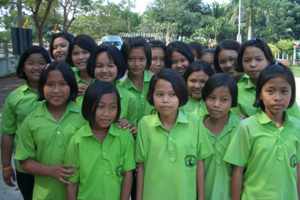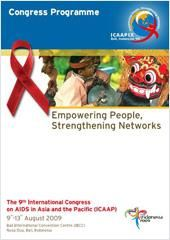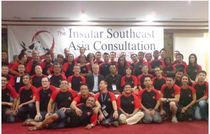Asia and the Pacific
UNESCO's response to HIV and AIDS in Asia and the Pacific

- © UNESCO Bangkok/S. Ahmed
- Advocacy and Educational Support to Adolescent Reproductive Health (ARSH) Project - Thailand
UNESCO's work in the Asia and Pacific region is carried out by the following Field Units:
UNESCO Regional Bureaux
Bangkok Regional Bureau for Education in Asia and the Pacific
Jakarta Regional Bureau for Science in Asia and the Pacific
New Delhi Regional Bureau for Information and Communication in Asia and the Pacific
UNESCO Cluster Offices
Almaty Central and South-West Asia Cluster Office
(countries under the cluster office are Kazakhstan, Kyrgyzstan, Tajikistan and Uzbekistan)
Apia Pacific Community Cluster Office
(countries under this cluster office are Australia, Cook Islands, Fiji, Kiribati, Marshall Islands, Federate States of Micronesia, Nauru, New Zealand, Niue, Palau, Papua New Guinea, Samoa, Solomon Islands, Tonga, Tuvalu and Vanuatu)
Bangkok East and South-East Asia Cluster Office
(countries under this cluster office are Cambodia, Lao People’s Democratic Republic, Myanmar, Thailand and Vietnam)
Beijing East and South-East Asia Cluster Office
(countries under this cluster office are China, Democratic People’s Republic of Korea, Japan, Mongolia and the Republic of Korea)
Jakarta East and South-East Asia Cluster Office
(countries under this cluster office are Brunei Darussalam, Indonesia, Malaysia, Philippines and Timor-Leste)
New Delhi South Asia Cluster Office
(countries under the cluster office are Bangladesh, Bhutan, India, Maldives, Nepal and Sri Lanka)
Tehran Central and South-West Asia Cluster Office
(countries under the cluster office are Afghanistan, Islamic Republic of Iran, Pakistan and Turkmenistan)
National Offices
Dhaka Office for Bangladesh
Hanoi Office for Vietnam
Islamabad Office for Pakistan
Kabul Office for Afghanistan
Kathmandu Office for Nepal
Phnom Penh Office for Cambodia
Tashkent Office for Uzbekistan
The Asia and Pacific region presented here follows the specific UNESCO definition which does not forcibly reflect geography. It refers to the execution of regional activities of the Organization.
- 03-08-2009
UNESCO finalises its new regional strategic framework for HIV & AIDS and Adolescent Reproductive Health in Asia and the Pacific
More

Expanding the use of innovative HIV prevention approaches using traditional forms of performing arts in Asia: Project Report (UNESCO Bangkok, 2008)
More

HIV and AIDS Myth Buster (UNESCO New Delhi, 2007)
More

UNESCO Activities at the 9th International Congress on AIDS in Asia and the Pacific
Bali, Indonesia-
From
- 10-08-2009 to
- 10-08-2009
More

Subregional network on HIV and MSM in insular Southeast Asia established
Bali, Indonesia-
From
- 06-08-2009 to
- 06-08-2009
More
UNESCO HIV and AIDS focal points in Asia and the Pacific review new draft regional strategic framework
Chiang Mai-
From
- 12-05-2009 to
- 16-05-2009





